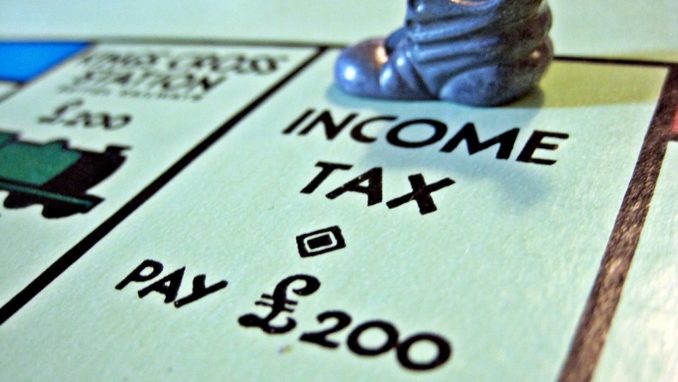
A well-designed tax policy would extract from citizens’ wealth what’s needed by the government to protect their lives and civil liberties. It would not be designed to achieve purely political objectives, no matter how dressed up.
The “Nanny State Index”, compiled by the Institute of Economic Affairs, shows that Britain charges more in “sin taxes” than any other major European country. It also has tougher levies, prohibitions and regulations governing the sale of alcohol tobacco, e-cigarettes and junk food than most of the continent. The Index was released ahead of a new ban on junk food advertising as set out in last week’s Queen’s Speech on planned legislation.
This is simply another variation on the “Save-the-NHS” motif that has been governing this country since Covid first appeared. The dogma runs something like this: “If left to their own devices people will stuff themselves and their children with sugary drinks and starchy comestibles leading to gross obesity, rotten teeth, cardiovascular disease and other ghastly ailments, leaving it to the sainted but overstretched National Health Service to cure them at public expense. Therefore such selfish behaviour should be penalized by taxation.”
If you join the dots in this thread of circular logic, the idiots who spend their money so irresponsibly are the ones who should bear the cost of the consequences – which, in a way, is what happens when the price of every naughty purchase includes a tax penalty. But the trouble is that sin-taxes cannot be channelled into a separate revenue stream, any more than the diseases caused by those sins can be neatly classified. Instead we have a vast amalgam of taxes and an undifferentiated array of things they must pay for.
What happened to common sense?
Needless to say, I don’t like this at all – but once the state is committed to welfarism, and dependency becomes the abiding culture, the first casualty is common sense. If I am an unrestrained gobbler-up of things harmful, no one but me should be expected to bear the cost of the consequences – and if those consequences include much pain and suffering there is a chance that a personal lesson is exactly what’s needed. Government has no right, still less duty, to shield me from my own karma. How else will I learn? Yet, if any candidate for office advocated such a philosophy today they would be “cancelled” before voting starts!
The allure of power
Power is another factor. This pandemic has shown government that once the populace has succumbed to fearful apprehension – a condition that government itself (abetted by its medical lackeys) has injected – the sheer thrall in which people are held is intoxicating. This is the very condition in which Caesar finds himself, perfectly described here by canny Cassius telling naïve Brutus why Caesar will find dictatorship irresistible:
Why, man, he doth bestride the narrow world
Like a Colossus, and we petty men
Walk under his huge legs and peep about
To find ourselves dishonourable graves.
Men at some time are masters of their fates.
The fault, dear Brutus, is not in our stars
But in ourselves, that we are underlings.
The same observation on the nature of power is made by George Orwell in his seminal work “1984”:
“Power is in tearing human minds to pieces and putting them together again in new shapes of your own choosing.”
Recognise it?
Tax policy as a political tool
When tax manipulation has become a tool of government, there is no limit to its propensity for distortion. It should be glaringly obvious to any government that (i) raising taxes indiscriminately is not conducive to economic progress; while (ii) the entire canon of historic evidence is that lowering taxes is, in general, beneficial, and usually results in a higher revenue yield.
Quite naturally, businesses in different countries compete with each other to produce and distribute goods and services of high quality at low cost. Therefore businesses in a country with a low tax regime are better able to compete with businesses that bear higher tax rates because – ultimately – all taxes are borne by people.
Governments try to camouflage who actually bears taxes using linguistic licence. For example, “corporation tax” sounds as if it’s something borne by “big business”, not by the voting public.
But that ploy works only because few people appreciate the difference between (i) where a tax strikes (its “incidence”) and (ii) by whom it is ultimately borne. A reduction in corporation tax enables companies to reflect it in their price structures, enabling them to compete more successfully – which means in turn that their customers (both domestic and overseas) are the beneficiaries.
Ireland – the perfect illustration
Businesses that compete internationally will therefore seek to operate in a jurisdiction with a low tax regime, and few countries have taken better advantage of this mundane observation than Ireland. Just consider: the United States has a flat corporate tax rate of 21% compared with 19% in the UK (rising to 23% in 2023), while Ireland has a corporate tax rate of only 12.5%, and this falls to 6.25% for income arising from a company’s patent or intellectual property, thus offering great incentives to investors in innovative ideas.
Ireland’s success in attracting massive inward investment has, however, also succeeded in generating massive amounts of poisonous resentment from those bloated bigots [sorry, revered masters of the universe], the European Commission and the Biden administration, neither of which can abide the fact that little Ireland, lithe and relatively unencumbered by monumental government waste and regulatory overkill, has proved such a popular base for major corporates such as Apple, Google and Amazon.
The European Commission has now declared that minimum national tax levels should be arbitrarily determined by the Paris-based Organisation for Economic Cooperation and Development (OECD), while Biden’s model of prudent administration plans to impose a minimum tax rate of 21% on the international earnings of all US companies.
The obvious consequence
It has been calculated that these moves would wipe out almost half of Ireland’s corporate tax revenues of €11 billion in a major blow to its economy, and could signal the departure of several large corporation tax providers to low-tax jurisdictions that are blessedly free of moronic oversight.
Not to be outdone in the idiocy stakes, that bastion of economic sagacity, the IMF, has contributed its own pearl of wisdom: “The Irish government needs to raise its taxes to fund education, housing and childcare”.
Why didn’t they think of that?!
© Emile Woolf May 2021 (website)
The Goodnight Vienna Audio file
Audio Player



